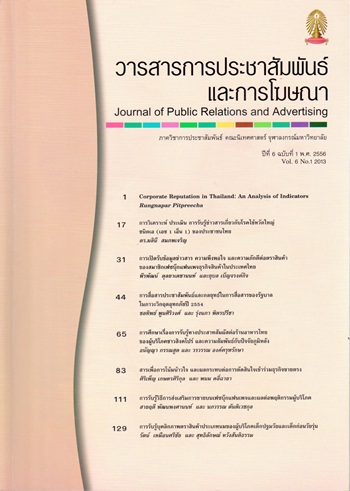การศึกษาเรื่องการรับรู้ทางประสาทสัมผัสต่อร้านอาหารไทยของผู้บริโภคชาวสิงคโปร์ และความสัมพันธ์กับปัจจัยภูมิหลัง
Main Article Content
Abstract
This paper is a part of an on-going dissertation on the Thai cuisine in Singapore. The main purpose of this research project is to delineate the sensory perception of Singaporean customers of Thai restaurants in Singapore so as to better understand their implications for policy initiatives that could guide a more efficient operation of Thai restaurants abroad, especially in terms of brand loyalty building strategies. Due to its relative sophistication, a case study of the prospects and problems of Thai restaurants in Singapore is likely to be of interesting applications in the emerging ASEAN Economic Community, where cultural, demographic, and income diversities are so great. This research combines qualitative and quantitative methods such as Focus Group Interview and Survey Research.
The focus group research found that Singaporeans are very familiar with Thai cuisine, both in Singapore and in Thailand. All participants have expressed a strong preference of Thai cuisine on the basis of its relative sophistication of delicious taste, sophisticated spices and herbs, and excellent service.
The survey research has found that Singaporean consumers have developed a sensory perception of Thai restaurants in all 5 senses. In terms of sex, age, profession, income, and education, no differences in sensory perception are detected, but sensory perception is found among consumers on the basis of religious differences, especially those with faith in Hindu who are comparatively sensitive to sight, touch, and smell.


